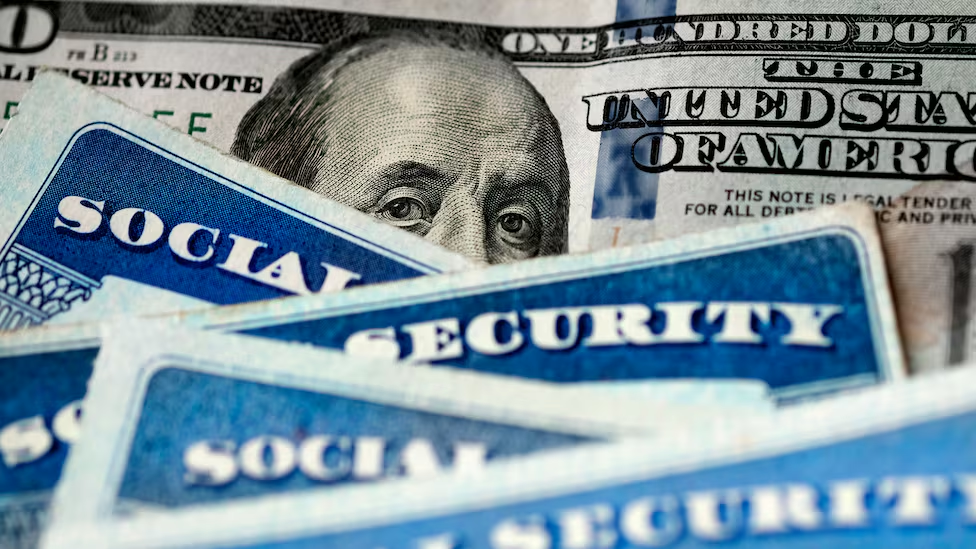Social Security Alerts, News & Updates
Social Security to Seize Full Benefits in Overpayment Crackdown

Hold Onto Your Wallets: Social Security’s New “Give It All Back” Policy
Remember when you were a kid and your sibling would take just one bite of your candy bar? Well, the Social Security Administration just decided to stop nibbling and go for the whole thing. Starting March 27, if you owe them money, they’re not playing around anymore.
Here’s the latest news on Social Security that has everyone checking their bank accounts twice. The SSA is ditching their gentle 10% monthly recovery rate. Instead, they’re going full repo mode on your Social Security payments. That’s right. They can now take your entire monthly check faster than you can say “but I need groceries.”
Picture this. You accidentally got overpaid $1,000 last year. Maybe their computer hiccupped. Maybe Mercury was in retrograde. Who knows? Under the old rules, they’d take $100 from your monthly Social Security checks until you’re square. Now? They might just keep your whole $1,500 payment and call it even. Hope you weren’t planning on eating that month.
Why This Sudden Change of Heart? (Spoiler: Money)
Acting Commissioner Lee Dudek says they need to be “good stewards of the trust funds.” That’s bureaucrat speak for “we need our money back yesterday.” This new policy supposedly saves $7 billion over ten years. Great for the trust fund. Less great for grandma trying to pay her electric bill.
The bad news about Social Security keeps coming. With the trust fund facing challenges, apparently squeezing beneficiaries harder became Plan A. Because nothing says “protecting seniors” quite like taking their entire month’s income in one gulp.
Let’s do some quick math. If you receive $1,200 monthly and owe $3,000, the old way would take 30 months of $120 deductions. Annoying but manageable. The new way? They could take everything for two and a half months. Better stock up on ramen.
Who’s Getting Hit With This Financial Sledgehammer?
Short answer: potentially anyone receiving Social Security benefits. Got overpaid because of their error? You’re on the list. Reported income changes late? Welcome to the club. Confused by their Byzantine rules and made an honest mistake? Join the party.
The really fun part? This affects all types of benefits:
- Regular retirement benefits (congrats on working 40 years, now give it back)
- Social Security disability payments (because being disabled wasn’t challenging enough)
- Survivor benefits (sorry for your loss, also we need that money)
- SSI payments (already living on the edge? Let’s push you off)
Shannon Benton from the Senior Citizens League points out this is “particularly unfair to seniors” who struggle with finances. In related news, ice remains cold and fire continues to be hot.
Your Options When They Come for Your Check
Don’t panic. You have options. They’re about as convenient as assembling furniture without instructions, but they exist.
Option 1: The Office Visit Marathon. Head to your local Social Security office. Pack snacks. Bring a sleeping bag. Maybe notify next of kin. You’ll need to explain why eating is important to you.
Option 2: Phone Roulette. Call (800) 772-1213. Pro tip: start dialing at dawn. By sunset, you might reach a human. Have your entire financial history memorized because they’ll ask for everything including your kindergarten report card.
Option 3: The Appeal Process. File a formal appeal arguing that you need money to survive. Revolutionary concept, I know. Write it like your life depends on it, because your dinner might.
You can request a payment plan, but it requires proving “financial hardship.” Apparently, needing food and shelter doesn’t automatically qualify. You’ll need documentation showing you’re not secretly swimming in gold coins like Scrooge McDuck.
The Part Where I Pretend There’s Good News
Look, I’m trying to find a silver lining here. Maybe this will encourage people to obsessively monitor their Social Security accounts? Perhaps it’ll inspire a new genre of financial thriller novels? At minimum, it’s job security for financial advisors specializing in crisis management.
The truth is, 69 million Americans receive Social Security payments. That’s a lot of people potentially facing surprise financial fasting. The SSA says they’ll work with people, but their definition of “working with” might differ from yours.
Survival Tips for the New Reality
Since we’re stuck with this policy, here’s how to protect yourself from becoming an unwitting participant in the SSA’s new collection practices:
Check your statements religiously. Log into your Social Security account monthly. Weekly if you’re paranoid. Daily if you’ve got nothing better to do. Catch overpayments before they catch you.
Report changes immediately. Got married? Divorced? Started working? Won $20 on a scratch-off? Tell them. Overcommunicate like your benefits depend on it.
Keep documentation. Save everything. Emails, letters, carrier pigeon messages. When they claim you owe money, you’ll need proof you don’t.
Build an emergency fund. I know, easier said than done on Social Security income. But even $100 could help when they decide to play keepaway with your check.
The Bottom Line (And It’s Not Pretty)
This latest news on Social Security proves one thing: the administration views beneficiaries as ATMs, not people. Taking someone’s entire monthly benefit isn’t recovery; it’s financial waterboarding.
The cruel irony? Many overpayments result from SSA’s own errors. Their systems are older than disco, their rules more complex than quantum physics, yet they expect perfection from people just trying to survive.
March 27 marks the beginning of this new era. If you’re applying for Social Security benefits, understand you’re entering a system that can giveth and taketh away with biblical efficiency.
My advice? Hope for the best, plan for the worst, and maybe learn some foraging skills. Because when the SSA decides you owe them money, your monthly check might go on an extended vacation. And unlike your benefits, it won’t send postcards.
Stay vigilant, stay informed, and most importantly, stay fed. Even if the Social Security Administration has other plans for your grocery money.